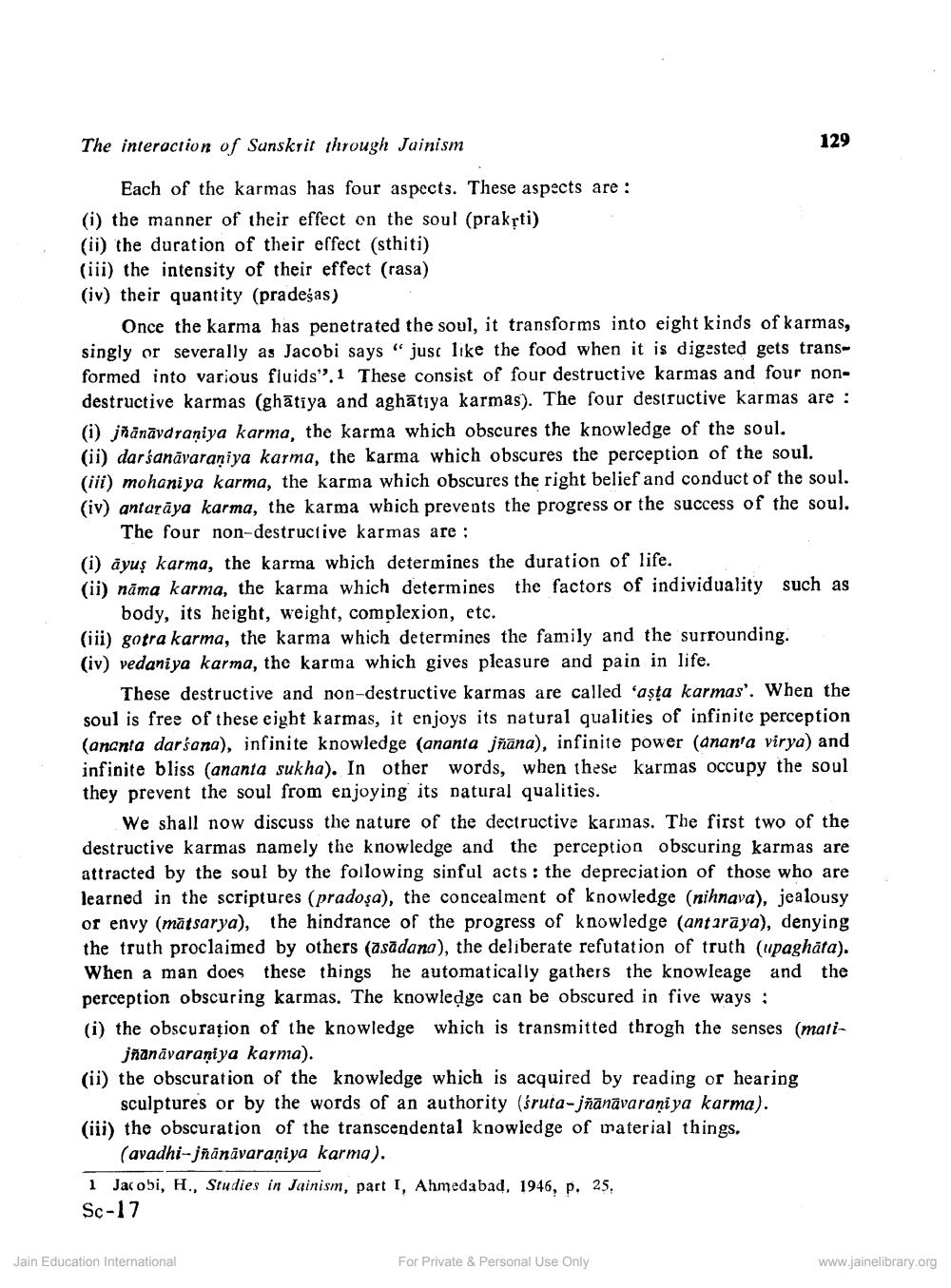________________
The interaction of Sanskrit through Jainism
129
Each of the karmas has four aspects. These aspects are : (i) the manner of their effect on the soul (prakrti) (ii) the duration of their effect (sthiti) (iii) the intensity of their effect (rasa) (iv) their quantity (pradeśas)
Once the karma has penetrated the soul, it transforms into eight kinds of karmas, singly or severally as Jacobi says “just like the food when it is digested gets transformed into various fluids". 1 These consist of four destructive karmas and four nondestructive karmas (ghātiya and aghātiya karmas). The four destructive karmas are : (i) jñānāvdraniya karma, the karma which obscures the knowledge of the soul. (ii) darśanāvaraniya karma, the karma which obscures the perception of the soul. (iii) mohaniya karma, the karma which obscures the right belief and conduct of the soul. (iv) antarāya karma, the karma which prevents the progress or the success of the soul.
The four non-destructive karmas are : (i) ayus karma, the karma which determines the duration of life. (ii) näma karma, the karma which determines the factors of individuality such as
body, its height, weight, complexion, etc. (iii) gotra karma, the karma which determines the family and the surrounding. (iv) vedaniya karma, the karma which gives pleasure and pain in life.
These destructive and non-destructive karmas are called 'aşta karmas'. When the soul is free of these eight karmas, it enjoys its natural qualities of infinite perception (ananta darśana), infinite knowledge (ananta jñāna), infinite power (anan'a virya) and infinite bliss (ananta sukha). In other words, when these karmas occupy the soul they prevent the soul from enjoying its natural qualities.
We shall now discuss the nature of the dectructive karınas. The first two of the destructive karmas namely the knowledge and the perception obscuring karmas are attracted by the soul by the following sinful acts: the depreciation of those who are learned in the scriptures (pradoşa), the concealment of knowledge (nihnava), jealousy or envy (mātsarya), the hindrance of the progress of knowledge (antarāya), denying the truth proclaimed by others (asādana), the deliberate refutation of truth (upaghāta). When a man does these things he automatically gathers the knowleage and the perception obscuring karmas. The knowledge can be obscured in five ways ; (i) the obscurațion of the knowledge which is transmitted throgh the senses (mati
jñanāvaraniya karma). (ii) the obscuration of the knowledge which is acquired by reading or hearing
sculptures or by the words of an authority (śruta-jñanavarani ya karma). (iii) the obscuration of the transcendental knowledge of material things.
(avadhi--jñānāvaraniya karma). 1 Jacobi, H., Studies in Jainism, part I, Ahmedabad, 1946, p. 25. Sc-17
Jain Education International
For Private & Personal Use Only
www.jainelibrary.org




